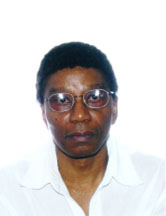The Third IASTED African Conference on
Water Resource Management
AfricaWRM 2010
Science and Technology Applications for Health and Sustainable Development
September 6 – 8, 2010
Gaborone, Botswana
SPECIAL SESSION ORGANIZER
Special Session on Water in Semi-arid Lands
Abstract
More than fifty percent of Earth's land area is semi-arid or arid. Large parts of southern Africa are arid/semi arid. Semi-arid lands are water challenged because there, potential evapotranspiration exceeds precipitation often by healthy margins. These water limited environments (WLE) hosted vibrant civilizations throughout history. Today, some of the planet's most productive agricultural lands are found in semi-arid environments. But semi-arid zones are also home to several underdeveloped communities, many ravaged by extreme poverty, environmental degradation and desertification. The staggering contrast between the two human development solitudes derives strongly from differences in water knowledge and management as well as overall adaptation to the water challenge. Differences apart, all semi-arid lands are coming under increasing stress because the climate is changing. Years ago, models projected more frequent and severer droughts in semi-arid lands due to global warming. Recent observational data confirm a trend that is consistent with that projection. These lands are also experiencing a stronger population growth than most other environmental zones. The new order comprising climate change, population pressure, and human economic and social advancement requires new thinking on water and its management in both developed and developing parts of semi-arid zones. The purpose of this special session is to contribute to such thinking. I expect the session to have a strong African bias but to the extent that research outside the continent informs new thinking that applies broadly to WLE including those in Africa, contribution from the global community is welcome.The session will comprise two parts. The first is a paper session on the following topics:
- Water sources in semi-arid lands; application and methods of mapping and classifying water in WLE
- Water balance in semi-arid regions
- Impact of climate change on water balance in semi-arid regions
- Variability and stability of water resources in semi-arid lands
- Water resource economics and management in semi-arid zones
- Water resource (supply and demand) forecasting for semi-arid lands
- Human dimensions of water resource issues and conflicts in WLE
- Adaptation strategies and water sufficiency in water limited environments
- Sustainable water resource development in WLE
The second part is a panel discussion on the future of water in semi-arid lands. This part will be structured to enable very significant audience participation.
Biography of the Special Session Organizer

Lawrence Nkemdirim holds PhD and DSc degrees. He is professor of Climatology and Hydrology at the University of Calgary, Canada, and Director of the Weather Research Centre. Prior to his doctorates, he trained as a weather forecaster and worked with the Meteorological Service in Lagos, Nigeria. He received his hydrological training at the Hydrological Institute, Wallingford, England. He has taught climatology and hydrology at Canada's Universities of Toronto and McMaster and in the Caribbean at the University of the West Indies. His research focus is on climate-water systems, meso-climates, and climate change and variability. He is editor of UNESCO's Encyclopaedia on Life Support Systems (Canada and the United States) and lead scientist for the International Council of Scientific Unions' sponsored research on extreme events. Lawrence is past chair of the Commission on Climatology of the International Geographical Union and Secretary of the Study Group on Applied Tropical Climatology and Human Settlements. He has authored/co-authored more than 200 articles and books on climatology, hydrology and water resources. He is a consultant to governments, local communities and the energy industry on environmental impacts.
Submissions
Please email all submissions to [email protected] by April 15, 2010. Authors MUST include their full contact information in the email.










